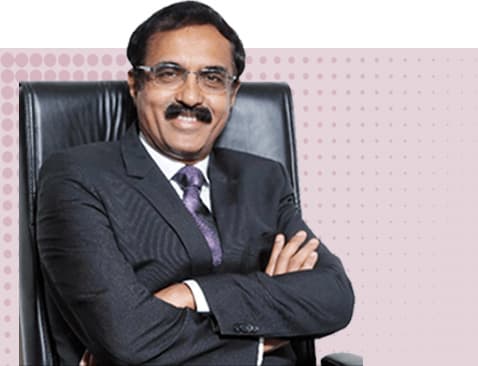
Caring For The Health Of Healthcare: Time To Unleash Disruptive Innovation
The Covid-19 pandemic has damaged the delicate fabric of the Indian healthcare sector essentially through low patient footfalls and operational stress. Many players of the private sector fought back with exceptional resilience through prudent cost cutting measures to offset the adverse impact on EBITDA and cash flows. Having said that, healthcare players - both public and private - must collectively move up the value chain of disruptive innovation to lock horns with future health challenges, more so at a time when the pandemic has taken a new turn led by the Omicron surge, and there is no clarity whatsoever on the expiry date of this diminutive virus. The digital route is the best bet to address healthcare challenges of the pandemic era where telemedicine and virtual consultations are no longer an option and in fact well on their way to become the de facto standard. Technology adoption will be a game changer for the industry what with AI, robotics, digital therapies, IoTs, ultrafast scanners, wearable devices, big data, blockchain and nano health promising measurable value across all aspects of health - from research to therapeutics. Collaboration and consolidation seem imminent to steer the larger cause of healthcare innovation in the guiding light of intelligent efficiency in various ways including business process reengineering, revamped continuity plans, better talent management and adoption of the Environmental, Social, and Governance (ESG) principles, given that how corporates serve the larger cause of their communities and environments is now a mainstream performance parameter in pandemic times and beyond.
Undoubtedly, the sector needs better support from the government to serve the larger cause of healthcare. High time policymakers collaborated with visionary health practitioners to institutionalize a prudent system to ensure that the affluent pay for value-added care, while the poor avail of free or subsidised rates.
Schemes like Ayushman Bharat and Aatmanirbhar Swasth Bharat mean well, but they do not bring about measurable value to the extent called for, given the mounting enormity of the rich-poor divide in India. We are several nations clubbed into one nation - developed, emerging, developing, and deprived - whereby the richest of rich and poorest of poor co-exist, albeit in respective water-tight compartments. No wonder, the top 10 per cent of the richest Indians own almost 65 per cent of the country's wealth, while the dismal share of the bottom 50 per cent is a little below 6 per cent. India hence needs a comprehensive universal health coverage to enforce uniformity of treatment through cross subsidy, devoid of any financial strain or debt traps for the economically challenged. This way, the price tags of medical services and procedures will vary, but not the quality of healthcare. The government can also build an endowment fund by monetising impaired assets, unused real estate, and loss-making ventures, whereby the withdrawals from the investment income of this fund can be earmarked for Health and Education. The private sector can be urged to make wilful contributions to the endowment corpus, which will have a far more sustainable impact than what private foundations and CSR initiatives achieve in individual capacities.
Value-based healthcare is rooted in democratic health care delivery, where any improvement in the accessibility and affordability of healthcare services should not accompany any dilution on the quality front. High time India shifted its healthcare focus from cost to value; high time we acknowledge the fact that cost consciousness and quality consciousness are not antithetical but symbiotic in their relationship. As long as Healthcare continues to be a cost issue in India, mass-scale value-based care will always remain a distant dream. How can Technology help if it stays cost-prohibitive?
It is also imperative that our government proactively helps private hospitals with better liquidity, fresh capital, grants, subsidies, tax incentives, and moratorium on payments. In the previous year's budget, the finance minister significantly increased the health sector outlay. Having said that, the 1.8 percent of GDP allocated to health falls short of addressing grassroot challenges. The allocation needs to improve substantially given that health is a bigger priority that smart cities and space missions. The tax structure around life-saving drugs and emergency treatments should be rationalised to make them affordable for the deprived populations who were the worst hit during the peak pandemic phases. Lowering of GST slabs and raising of tax deduction limits are crucial to serve the larger cause of insurance. Inclusion of the poor should be the focal point of comprehensive coverage schemes. Given the looming threat of mutations and Covid-like microorganisms, we also need to invest in tech-enabled systems using predictive genomics to prevent large-scale outbreaks and devastation. This would call for more funds to fortify India's prevention, surveillance, and response capacities towards infectious disease intervention.
By: Dr. B.S. Ajaikumar, Executive Chairman, HealthCare Global Enterprises Ltd | Tuesday, 08 February 2022